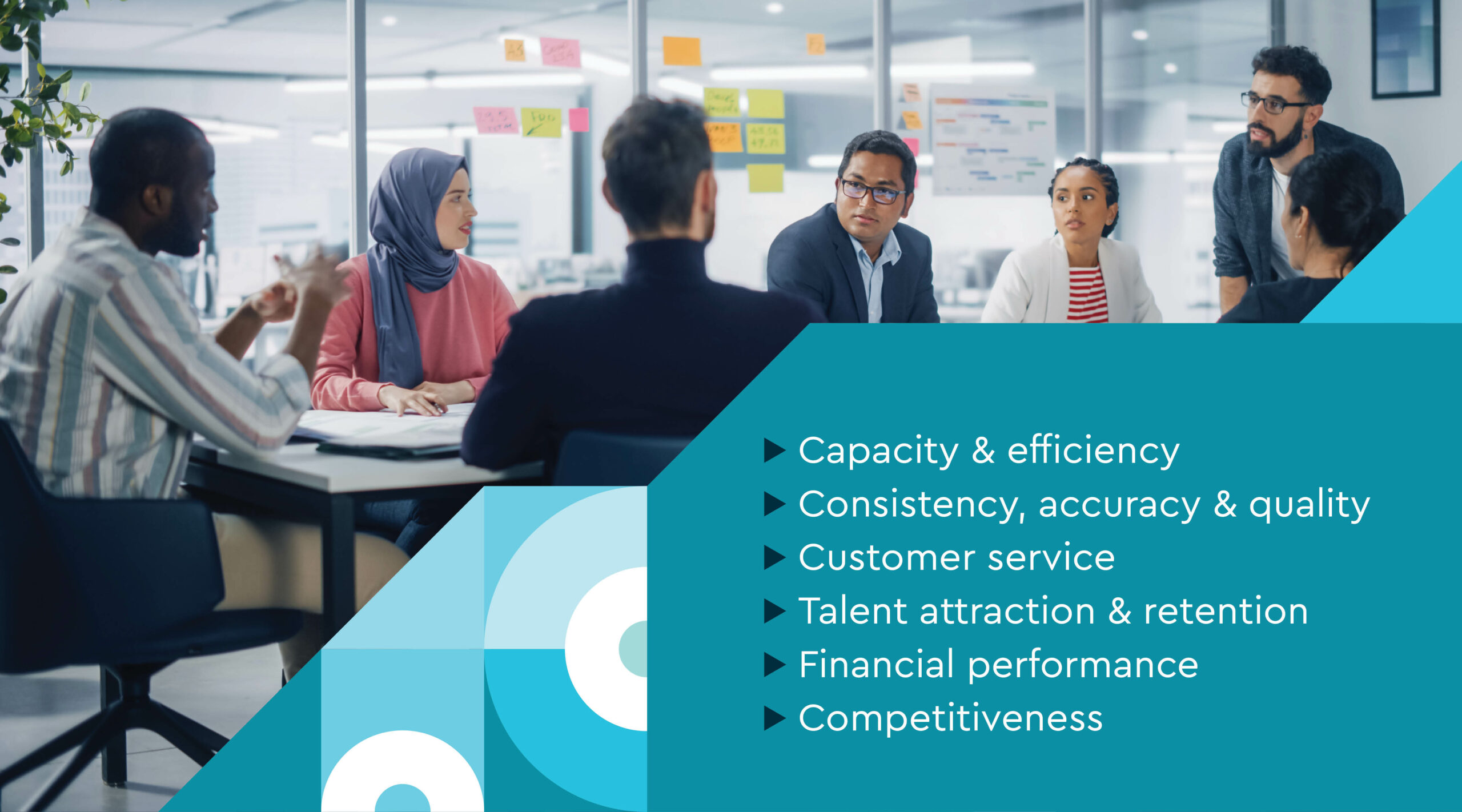We live in a world reshaped by technology, with change accelerating and expanding across every industry, accounting included. One major contributor to this shift is the rise of cloud computing, which has enabled innovative solutions for accounting digital transformation.
Put simply, cloud computing allows data and software features to be accessed and securely managed over the internet, supporting flexibility in where and how teams work. McKinsey recently highlighted the value of this approach. According to their forecasts, Forbes Global 2000 companies could unlock up to $3 trillion in additional EBITDA value through cloud adoption by 2030. Key revenue drivers include innovation, scalability and IT cost optimisation.
In the accounting sector, an Intuit QuickBooks survey of UK-based firms found that respondents identified advancements in cloud accounting software and digital technologies as the most significant positive impact on the industry over the past five years. This success has led to 47% of firms saying they are planning to invest in cloud technologies within the next 12 months.
Why cloud is a solution for accounting digital transformation
For accounting firms, connected cloud platforms now bring everything together in one place. Teams can manage tasks like working papers, tax filings and client communications within a single digital space. Information can be updated, shared and accessed in real time from almost anywhere, enabling accountants to work more flexibly, collaborate easily and provide clients with faster, up-to-date insights.
Of course, as with any major innovation, cloud computing also raises new questions and concerns.
The challenges of adopting cloud accounting software
Harnessing cloud-based software as a solution for accounting digital transformation opens up many opportunities, yet firms may have a few initial concerns that can be addressed along the way:
Adapting to new workflows
Moving beyond paper and Excel-based processes can feel like a big shift, especially for teams accustomed to traditional methods. Cloud accounting software represents a change in both mindset and daily operations, and this unfamiliarity can sometimes feel like a stumbling block.
With the right change management strategy in place, clear communication and focused training, however, accountants can confidently embrace cloud software and unlock the efficiencies that modern technology brings.
Integrating with existing systems
Many firms rely on a combination of legacy software and established processes, and there’s often a concern about whether a cloud solution will fit within this existing structure. Integration issues can lead to worries about potential disruptions to established workflows.
To address these concerns, leading providers of cloud accounting software offer features specifically designed for easy integration. These tools allow firms to connect new cloud solutions with their existing systems, ensuring a smooth transition and minimising disruptions.
Data security
Firms and clients may worry about whether sensitive financial data stored in the cloud is more vulnerable to breaches and cyberattacks. The idea of moving confidential client information online can raise questions about privacy and data integrity.
Fortunately, reputable cloud accounting software providers place a strong emphasis on security, implementing multiple layers of protection to safeguard data. Additionally, these providers comply with strict data privacy regulations, such as GDPR, to maintain high standards in data handling and storage.
In many cases, these security protocols allow cloud-based solutions to offer a higher level of security than on-premises systems, giving firms and clients peace of mind that their data is well-protected.
Top cloud accounting software solutions for UK firms
Cloud-based accounting platforms offer the flexibility to connect with each other and integrate seamlessly into existing workflows, helping firms get more value from their technology investments. Some of the platforms accountancy firms may consider incorporating into their tech stacks include:
Silverfin
Built by accountants for accountants, Silverfin’s powerful cloud-based accounting software helps firms transition smoothly from paper and Excel-based workflows to a fully digital environment. Key features include connected Working Papers for efficient account management, Accounts Production for quick, MTD-compliant statutory accounts, Corporation Tax for fast and easy tax preparation and filing, and Management Accounts for automated reporting.
QuickBooks Online
QuickBooks Online provides a range of tools suited to small to medium-sized businesses, offering a cloud-based platform that covers bookkeeping, invoicing, and more. Known for its user-friendly interface, it includes data encryption and secure login protocols.
Xero
Xero’s cloud platform offers real-time access to financial data, which can support collaboration among accountants, clients, and teams. Xero includes automated bank feeds, invoicing, and payroll features, and its scalability suits firms of different sizes.
FreeAgent
Designed for freelancers and small businesses, FreeAgent includes tax-focused features tailored for the UK, such as automated reminders, tax calculators, and expense tracking. Its simplicity and clean interface help firms ease into digital workflows, making it a practical option for smaller teams.
Microsoft Azure
Commonly known as Azure, this cloud computing platform operated by Microsoft provides a wide range of tools for accessing, managing, and developing applications and services, all hosted through a network of global data centres.
Embracing AI-based accounting solutions in the cloud
Cloud platforms are built to scale, allowing firms to access and deploy AI tools without needing to upgrade physical infrastructure.
Silverfin’s cloud-based accounting platform, for instance, offers built-in AI-driven features that automatically analyse client data, detecting trends, patterns, and anomalies to deliver deeper insights that support better decision-making.
Conclusion
While adopting any new solution for accounting digital transformation presents some initial challenges, the benefits of a cloud-based approach far outweigh these hurdles. From streamlined workflows to enhanced data security and powerful AI-driven insights, cloud technology like Silverfin empowers accounting firms to work more efficiently and deliver value to clients faster.
Ready to enhance accounting firm team collaboration and boost efficiency? Book a demo with Silverfin today.













